Recording artist, songwriter, essayist, investor, and so much more: D.A. Wallach is a true polymath. In this episode, among the highlights, D.A. provides compelling and colorful insight into how the music industry works today vs the past, liquid biopsies, how to approach healthspan, and how we can reach a “singularity” in medicine.
Subscribe on: APPLE PODCASTS | RSS | GOOGLE | OVERCAST | STITCHER
We discuss:
- How to learn music as a kid and an adult [7:30];
- Chester French’s early struggles and ultimate success [16:45];
- Learning to learn, fostering curiosity in kids, and balancing creativity with structure [31:30];
- D.A.’s musical inspirations [44:30];
- History of the music industry, Spotify, and other disruptive technologies [50:00];
- The past, present, and future of medicine, hospitals, and healthcare [1:05:30];
- Investing in health [1:16:30];
- What D.A. is most excited about in the future of medicine [1:22:00];
- Liquid biopsies, how to make sense of the morass of sensitivity, specificity, positive predictive value, negative predictive value, true negatives, false positives, false negatives, and true positives in cancer screening…and the Swiss cheese metaphor [1:33:00];
- The immune system, inflammation, and allergies [2:05:45]; and
- More.
§

D.A. Wallach
D.A. Wallach is a recording artist, songwriter, investor, and essayist who Kanye West and Pharrell Williams discovered while he was an undergraduate at Harvard College. He has been featured in GQ, Rolling Stone, Vogue, and numerous other publications, and has toured with N*E*R*D, Lady Gaga, and Weezer. D.A. has also performed on TV Shows including Jimmy Kimmel Live and Late Night with Jimmy Fallon.
As one half of Chester French, D.A. has released three full-length albums, and has written and performed on records with Janelle Monae, Rick Ross, Diddy, and many others. His solo debut for Capitol Records, Time Machine, is available at: www.TimeMachineAlbum.com
Beyond music, D.A. invests in and advises several start-up technology companies, including SpaceX, Doctor On Demand, Ripple, Emulate and Spotify, where he was the official Artist in Residence. Forbes selected D.A. as one of its 30 Under 30 and Fast Company named him one of the 100 Most Creative People in Business. In 2015, he launched Inevitable Ventures, an investment partnership with multibillionaire Ron Burkle that supports radical entrepreneurs in areas including health care, the life sciences, and financial technologies.
In 2016, D.A. made his feature film debut in La La Land, which won a record number of Golden Globe Awards and received 14 Academy Award nominations, making it one of the 3 most nominated films in history. He frequently publishes essays on media, technology, and philosophy at dawallach.com and Medium. [dawallach.com]
DA on Facebook: D.A. Wallach
DA on Instagram: @dawallach
DA on Twitter: @dawallach
DA’s website: dawallach.com

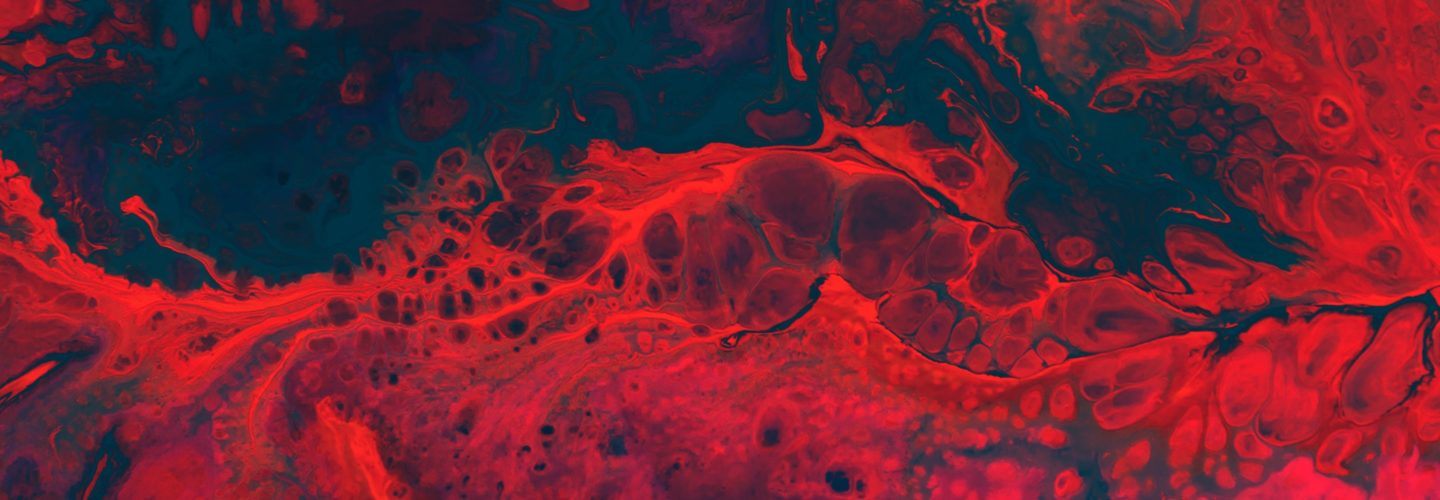
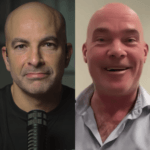
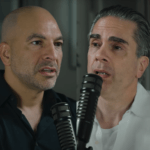
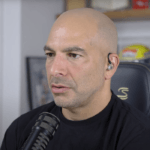
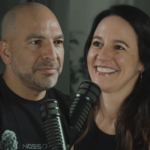
Thanks again Peter. I was pleasantly surprised to see you take on the topic of music . I believe that being sensitive to tone in speech is an important part of communication . Most people are at least subconsciously aware of it , just as they are aware of a singers tone . Yet it is a skill that can be refined or cultivated .
Regarding raising kids and music , I really concur with D.A. that encouraging a kid to just play with an instrument is a great thing to do. Many will start to make good sounds . Theory definitely should or can come later . (Many very talented musicians do not have much need for it) I have seen so many piano or flute students turn away from music early because they were taught to read first . Eric Weinstein ( the math, finance and philosopher dude who works for Peter Thiel) tells a great story about his grandfather giving him a guitar at age 9 or so and being told just to tune it . Apparently he is a fairly accomplished jazz guy now .
My own son is a professional musician who did not learn to read music until he was 19 . As for me, I did not learn until about 40 . I am 60 now and still playing for fun.
I also wonder if D.A. has ever heard about one of your neighbors, Diana Deutsch. She has done incredible work in the psychology and neuroscience of pitch perception at UCSD.
Really appreciate the show ,
Mike McEvoy
Just wanted to commend the level of detail on these show notes – don’t think I’ve ever seen such a good job! Whomever does them, thank you 👏
Enjoyed the episode, as usual. Somewhat over my head at points, which I appreciate – much to learn 😊
As Tim mentioned on his latest podcast, Jason fried – and DHH, actually – would be great guests. Unconventional thinking, classic cars, vintage watches, auto racing – I think you’d have a lot in common and a good discussion to boot. Their interviews with Tim are worth listening to.
images of members of Led Zep on first three albums…
I’d like to see more exploration of the microbiome on health. What if “23andMe” merged with “uBiome”? Why? Because looking only at genetics or only at the microbiome hasn’t answered as many questions as we’d like. My hypothesis is that, given enough subjects self-reporting aspects of health and disease, along with their genetics PLUS an understanding of their personal microbiome, that will result in real breakthroughs! There is a lot of information out there, but this article is a good start: https://ubiome.com/blog/post/healthy-immune-system-roots-gut “healthy-immune-system-roots-gut”
My interest is personal, since I’m susceptible to an autoimmune disease (ulcerative colitis). There’s a class of drug that worked for me for many years (5-ASA), but it quit working, and I was up against the decision to take something that shuts-down the immune system. I didn’t want to go that route without trying to alter my gut microbiome. I left the US to get FMT, which is only allowed in the US to treat C difficile infections. After the FMT, I changed my diet, took a course of Mutiflor (E. coli strain Nissle 1917), and I’ve been symptom-free for three years. I no longer take any medications for the gut issue. n=1, but I’m super glad not to have a compromised immune system or, worse, some fraction of a colon.